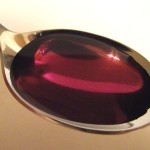How to Get Rid of Persistent Cough – Natural Treatment
Numerous people deal with persistent cough that usually extends from winter till spring because it was not properly treated. This accumulation of phlegm can be quite difficult to eliminate.

Persistent Cough – Recipe
This is an old remedy that can be used for persistent and difficult to treat cough. It was mainly used by the native Northern Americans. After consuming this tea, you will notice that the cough will become worse, but there is no need to worry. This is a sign that the phlegm is eliminated. In 24 hours, the cough should disappear. If you are allergic to one of the ingredients used in this recipe, then don’t consume this tea.
Ingredients
– 1 lemon
– 2 garlic cloves
– 1 tablespoon of grated ginger
– 1 pinch if ground cloves
– 1 pinch of ground anise
– 1 tablespoon of apple cider vinegar
Preparation
Wash the lemon with apple cider vinegar to remove all the pesticides. After that, grate it and squeeze the juice. Let the juice and the peel boil in 1 and ½ cup of water. Add the ginger and all the other ingredients. Add the apple cider vinegar and, at the end, the crushed garlic. Use honey to sweeten this tea. Drink this tea while it’s still hot.
If you want a more natural alternative for this recipe, you can prepare a raw syrup from 1 teaspoon of grated ginger, 1 teaspoon of apple cider vinegar, 1 garlic clove, 1 pinch of cayenne pepper, 2 tablespoons if honey and 2 tablespoons of lemon juice. Put all the ingredients in a glass and stir well. Take 2 – 3 tablespoons several times per day. This syrup can be kept for 2 – 3 days in the fridge.
Apple cider vinegar has numerous benefits and in this particular case, it offers antiviral, antibacterial and antiseptic properties. It contains numerous minerals, vitamins, enzymes and amino acids that boost immunity and promote healing.
Ginger is a natural anti-inflammatory and antihistamine agent and it also has anti-coughing properties. It produces a strong warming effect and stimulated the nervous system, easing the congestion pectoris.



